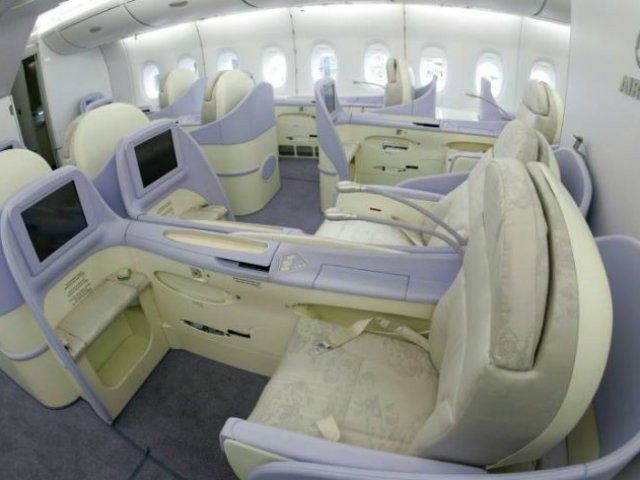While the government budget deficit continues to rise, new figures have shown how officials have spent £100million on luxury travel, billed to the tax payer.
Despite the government barring civil servants from going first class in all but the most exceptional cases, several departments are spending tens of millions of pounds on train tickets which are unaffordable for those on the average salary, the Telegraph reports.
£60 million was spent on business class flights where mandarins get luxury lounges before departure, bigger seats and champagne, with an additional £26 million forked out on taxis.
In 2011, Chancellor George Osborne laid down tough rules on travel allowances, allowing first class rail travel only in exceptional circumstances. Yet in the last four years, £13 million has been spent on first class rail services which are often more expensive than economy priced flights and again come with table service and an at seat bar.
The biggest spenders are the Ministry of Defence, whose bill for travel is a huge £34 million, even more than the foreign office at £23 million. The Ministry of Defence’s spending on business class air travel bill has risen from £7.4million to £8million although a majority of travel for its civil servants would be to NATO bases including Brussels, which can be easily accessed by train, or other European countries.
And the Department for International Development has seen a splurge in their taxi bill from £190,00 to £260,000 in a department which is already struggling to spend its annual budget on worthwhile and cost effective projects.
In an attempt to highlight his ‘Vote Blue, Go Green’ credentials, David Cameron said that all ministers and civil servants should take economy class flights. But the very department responsible for ‘green’ policies, the Department for Energy and Climate Change, saw its taxi bill rise from £50,000 to £87,000.
The first class rail bill for the Department for Business, Innovation and Skills rose from £1.1 million to £1.7 million since 2010 while the Foreign and Commonwealth office rose £84,167 t0 £402,856.
The overall bill for business class flights has risen from £14million to £15.2million over the past four years.
The overall bill has actually fallen from £28 million in 2010-11 to £22 million 2013-14 making the rise in the bill from government departments more significant.
John O’Connell, the director of the Tax Payers Alliance told Breitbart London: “This bill must come down, because as it stands it is absolutely outrageous. It’s time to re-energise efforts to get mandarins back into the real world. Taxpayers shouldn’t be on the hook for travel they can’t afford themselves”.
A government source said: “Taxis are used in some cases to transport disabled staff, and the spend has come down significantly since 2010. In general short haul flights are normally economy unless there is no availability at the last minute.
“This is an organisation of 440,000 people, it is still a very big organisation. This is, however, something we will keep looking at. We have outlined ambitious plans to save a further £10billion by 2017/18 and £15billion to £20billion over the next Parliament.
“This Government’s efficiency and reform programme saved taxpayers £14.3 billion last year alone compared to Labour’s last year in office. Taxi use is controlled by departments and includes those for disabled staff members pursuing official business. Details of overseas travel by ministers and senior officials are published quarterly”

COMMENTS
Please let us know if you're having issues with commenting.